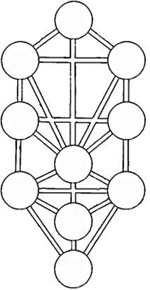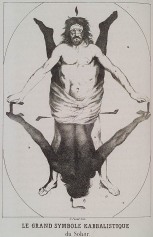Written By: Steven Kennebrew-Turner
~Dub Deuce The Poet~
©2013
By now, many of you have seen Quentin Tarantino’s DJango Unchained. With much excitement and despair over the movie, the Black Community appears to be split down the middle whether the movie is favorable or unfavorable to Black People. In recent times, two powerful internet radio shows harambeeradio.com and waronthehorizon.com both covered this movie extensively. Hosts and callers of each show all had different views on the movie. For me, a couple of callers added the inspirational icing on the cake that triggered me to write this article.
While many movie goers and Oscar cheerers interpret this film as the slave finally winning over the slave master, many miss the magical production of the movie. Simply put, there are many things hidden in plain site. But, first, let’s lay some ground work.
In a radio interview with a syndicated radio host, Tarantino stated that when he finished writing the script that he consulted with Sidney Poitier about the script. In contrast to consulting with a Black cinema icon, Tarantino called Roots (authored by Alex Haley) inauthentic. In his own words, Tarantino admits to having “trepidation” about making the movie. Thus, Quentin was looking for acceptance of a people on the movie; which was quite evident.
One such attempt was having the music of Rick Ross and Tupac Shakur playing in climatic scenes in the movie. Though Rick Ross’s song “100 Black Coffins” serves as a rise-up song, it is one that metaphorically returns the color “Black” negatively to the subconscious mind… “100 black coffins, 100 black graves, 100 black preachers, and 100 black bibles”. The focus of the description “Black” in this song captures only the death & destruction of the color.
Then, there’s the background tune of one of Tupac’s famous phrase “expect me n-word like you expect Jesus to come back”. This reminded me of the times when white guys from school would ride through the Black neighborhoods wanting to hangout to be cool. And, one of the common things they would do is play a hot rap song in their vehicle as-if-to say “I’m cool too…or, I’m hip like you.” And, only those Black teens that could not see the game being played on them would party with the music.
Another attempt of Black favoritism was the scene of Black servants and companions eating at the table with their slave master at the restaurant. And, not the second hand foods but the prime foods that Mr. Candie ate.
Now, let’s look further into the movie…Hidden In Plain Site (the seen but unseen of the unconscious mind):
- The darkening of the skin of Samuel L. Jackson’s character. This is another cinema stab at the subconscious of human beings (including Blacks) that the darker the skin color the more evil the hue-man being’s behavior is.
- As one of the white slave owners whipped his slaves, he quoted from a Christian bible while holding it and having pages from it attached to his torso. This is very symbolic of how the Christian doctrine has been used to enslave the minds of Black people. Sadly, this is still true today.
- The affinity of the scrotum of the Black Man and/or the Black Penis. Throughout the movie, the reference of the pleasure in cutting-off the scrotum of a slave is an illustration of genocide. Exterminating the semen of a Black Man is an extermination of generations of a family. As well, before you had to raise your right hand and put the left one on the bible and “tell the truth…whole truth and nothing but the truth”, you had to grab your testicles before you “testified”. If you lied, they were cut-off.
- The character of Mr. Candie is the illustration of Quentin Tarantino’s alter ego.
- The statue of Nefertiti in the Cleopatra’s Club House is an illustration of “Stolen Legacy”.

- In the beginning, Dr. Schultz introduces himself to the slave masters of the chain gang as a weary traveler…i.e. a traveling man.
- DJango’s head passes through the noose as they ride into town for the first time.
- When raised to an upright level, DJango appears in blue & white attire…the color of the awaken or raised conscious mind…the Blue Light. As well, the Moorish Blue attire is very similar to the Blue attire that was worn by Prince Hall (Founder of the African Lodge of the Honorable Society of F&AM).
- Freed & Raised but far from accepted…DJango still didn’t get the respect from his fellow free-men (the whites). This is similar to today (in the United States) how Prince Hall Grand Lodges are not recognized by the Grand Lodges (i.e. white lodges).
- Though “raised”, DJango only kills one white person of power (Big Daddy). And, he had to get permission from the German to kill him. Everyone else that he kills was lower statue whites that could barely afford to be white.
- Stephen (Samuel L. Jackson) is the sidekick of Mr. Candie, while Dr. Schultz is the sidekick of DJango.
Let’s look at the name, DJango. By the “D” (the 4th letter in the English alphabet) being silent in pronunciation of the title, the next letter in the name is “J” (the 10th letter of the English alphabet). 4 represents balance, and when in plural form it could be represented by the number 22. In the Tree of Life (or Kabbalistic Tree), there are 22 paths of creation. By the “D” being silent, the path of creation is cut-off or hidden. Meanwhile, the number 10 is a representation of the 10 Sephiroth in Kabbalah…i.e. there’s some magic or spell taking place. In addition to the hidden elements already mention, one such is very evident when the character of Sheba appears in the film (played by Nichole Galicia). Though Sheba’s role is small to the naked eye, it is quite huge in the symbolism of Tarantino’s magic.
In the Grand Symbol of Kabbalah, the image is a portrait of a Caucasian man sexually penetrating an Aboriginal (Black) Woman from behind. He is standing (erected); She is upside (blindly being taken advantage-of)…i.e. the 1964 Equal Opportunity Act (LBJ’s War On Poverty).
In this “now you see me now you don’t” portrait of creation, in order for the Caucasian’s works or legacy to live-on, they must be birthed by the Black Woman. Thus, he must penetrate and control the Black Woman in order for his control or enslavement of the Black Community to commence. How so; you ask? Well, the Black women is the first to teach the child (during times of physical slavery even the white child). So, not only does she give birth to systematic slaves (in the eyes of the master), she will educate them with an implanted abundance of fear and hood economics of success (military, sports, and entertainment). The Sephiroth is symbolic of the womb of a Black Woman, thus the circumference of the Black Community’s mind is determined by the master hidden in plain site…he that controls the circle. Therefore, She (the Black Woman) births the white man’s dreams…i.e. She-Births or She-Ba.
The Africans in America today are a conquered people. Though the African ancestry is Aboriginal and gave birth to the stolen legacy of today, the majority of the descendants of this history are oblivious to it. Thieves and conquers of such people and their history know that wherever The Black Woman doesn’t exist, then there is no life. Thus, they tend to keep Her around and controlled. In Hollywood, locally, it’s known that rich white men have a desire for black women that are promiscuous. So, its no surprise that “Mr. Candie” has a swagger relevant to Hugh Hefner…DJango got his Black Queen, and Tarantino has circled his She-Ba…one of many controlling the minds of his viewers thru the nectar of the Black Womb-man.
Black Mind Control:
Many viewers consider the movie to be one of a hero. However, a Heru (hero) normally is one for the people or saves the people. Jamie Foxx’s character was one that appeared narcissistic. His only mission was to free his woman. When allowed the opportunity to assist with the freedom of his fellow Black Brothers, he didn’t. Thus, the audience cheered for one who was only individualistic not communal. Further embracing the idea of “I got mine; now you get yours”. The only time there was Black unity in the movie is in the beginning when the slaves got unchained and killed the slave master trapped under the horse. The movie further penetrated the subconscious minds of Blacks that slaves only unite under the progression of the master’s plan…not their own. “He Ain’t Heavy”. Hotep. 





